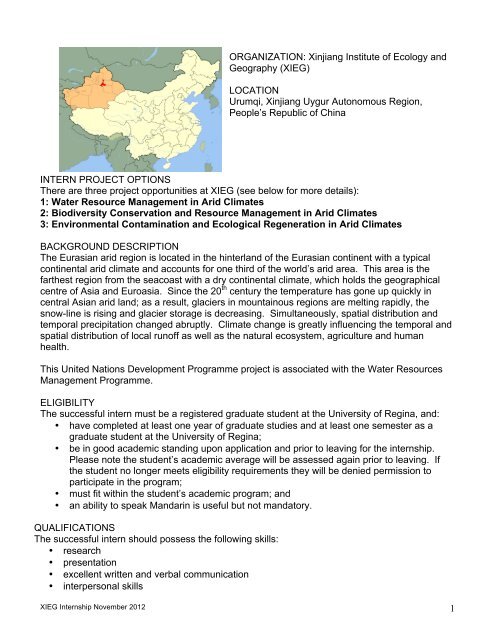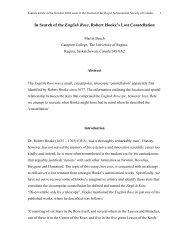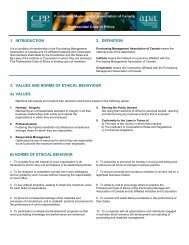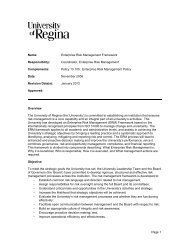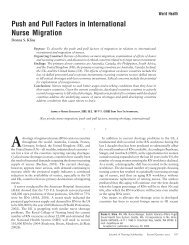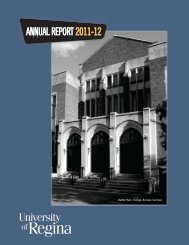Project Description: Xinjiang Institute of Ecology and Geography
Project Description: Xinjiang Institute of Ecology and Geography
Project Description: Xinjiang Institute of Ecology and Geography
Create successful ePaper yourself
Turn your PDF publications into a flip-book with our unique Google optimized e-Paper software.
ORGANIZATION: <strong>Xinjiang</strong> <strong>Institute</strong> <strong>of</strong> <strong>Ecology</strong> <strong>and</strong><strong>Geography</strong> (XIEG)LOCATIONUrumqi, <strong>Xinjiang</strong> Uygur Autonomous Region,People’s Republic <strong>of</strong> ChinaINTERN PROJECT OPTIONSThere are three project opportunities at XIEG (see below for more details):1: Water Resource Management in Arid Climates2: Biodiversity Conservation <strong>and</strong> Resource Management in Arid Climates3: Environmental Contamination <strong>and</strong> Ecological Regeneration in Arid ClimatesBACKGROUND DESCRIPTIONThe Eurasian arid region is located in the hinterl<strong>and</strong> <strong>of</strong> the Eurasian continent with a typicalcontinental arid climate <strong>and</strong> accounts for one third <strong>of</strong> the world’s arid area. This area is thefarthest region from the seacoast with a dry continental climate, which holds the geographicalcentre <strong>of</strong> Asia <strong>and</strong> Euroasia. Since the 20 th century the temperature has gone up quickly incentral Asian arid l<strong>and</strong>; as a result, glaciers in mountainous regions are melting rapidly, thesnow-line is rising <strong>and</strong> glacier storage is decreasing. Simultaneously, spatial distribution <strong>and</strong>temporal precipitation changed abruptly. Climate change is greatly influencing the temporal <strong>and</strong>spatial distribution <strong>of</strong> local run<strong>of</strong>f as well as the natural ecosystem, agriculture <strong>and</strong> humanhealth.This United Nations Development Programme project is associated with the Water ResourcesManagement Programme.ELIGIBILITYThe successful intern must be a registered graduate student at the University <strong>of</strong> Regina, <strong>and</strong>:• have completed at least one year <strong>of</strong> graduate studies <strong>and</strong> at least one semester as agraduate student at the University <strong>of</strong> Regina;• be in good academic st<strong>and</strong>ing upon application <strong>and</strong> prior to leaving for the internship.Please note the student’s academic average will be assessed again prior to leaving. Ifthe student no longer meets eligibility requirements they will be denied permission toparticipate in the program;• must fit within the student’s academic program; <strong>and</strong>• an ability to speak M<strong>and</strong>arin is useful but not m<strong>and</strong>atory.QUALIFICATIONSThe successful intern should possess the following skills:• research• presentation• excellent written <strong>and</strong> verbal communication• interpersonal skillsXIEG Internship November 2012 1
• problem solving• technical report writing• GISDATESThe period <strong>of</strong> the internship is for three months, beginning no earlier than May 1, 2013 <strong>and</strong>ending no later than August 31, 2013.ORGANIZATION DETAILSThe <strong>Xinjiang</strong> <strong>Institute</strong> <strong>of</strong> <strong>Ecology</strong> <strong>and</strong> <strong>Geography</strong> is a comprehensive <strong>and</strong> multi-disciplinaryinstitute engaged in research on oasis ecosystem <strong>and</strong> its evolution mechanism, oasis ecologicalconstruction <strong>and</strong> environmental improvement, exploitation <strong>and</strong> use <strong>of</strong> resources <strong>and</strong> regionaldevelopment. At present, XIEG is composed <strong>of</strong> 8 research departments, 9 field stationsincluding 3 state field stations <strong>of</strong> scientific observation, one scientific library <strong>and</strong> one SpecimenExhibition Hall. The major fields <strong>of</strong> XIEG include the ecological process <strong>of</strong> oasis ecosystem,Coupling mechanism <strong>of</strong> oasis-desert ecotone, oasis environment evolution <strong>and</strong> degenerationmechanism, Integration <strong>of</strong> desertification control technology, restoration <strong>and</strong> reconstruction <strong>of</strong>the damaged ecosystem, experiment <strong>and</strong> demonstration <strong>of</strong> oasis eco-agriculture, informationsystems <strong>of</strong> regional sustainable development, programming <strong>of</strong> industrial structure <strong>and</strong> urban <strong>and</strong>rural development, <strong>and</strong> biodiversity research.# OF SPACESUp to 3 interns will be selected.PARTICIPANT RECOGNITIONUpon successful completion <strong>of</strong> the internship, the University <strong>of</strong> Regina may award academiccredit or recognize the intern’s participation on their academic transcript. If credit is awarded,the total number <strong>of</strong> credits awarded is at the discretion <strong>of</strong> the University <strong>of</strong> Regina.PROJECT 1: Water Resource Management in Arid ClimatesOBJECTIVES1) Underst<strong>and</strong> geographic <strong>and</strong> environmental characteristics <strong>of</strong> arid regions.2) Underst<strong>and</strong> eco-hydrological processes in arid regions <strong>and</strong> characteristics under climatechange.3) Underst<strong>and</strong> effects <strong>of</strong> climate change <strong>and</strong> local l<strong>and</strong> use on water resources in arid regions.4) Apply Remote Sensing <strong>and</strong> GIS to ecological environment research in <strong>Xinjiang</strong>.INTERN TASKS1) Participate in project research activities, which may include:a) Attend training courses on physical geography <strong>and</strong> hydrologic processes <strong>of</strong> aridregions;b) Attend training courses on Remote Sensing <strong>and</strong> GIS technologies;c) Conduct field survey <strong>and</strong> analyze hydrologic features <strong>of</strong> the Tarim River.2) Organize a presentation <strong>and</strong> academic discussion.3) Prepare a final report.QUALIFICATIONS:The successful intern should possess the following skills:XIEG Internship November 2012 2
-Research-Presentation-Excellent written <strong>and</strong> verbal communication-Interpersonal skills-Problem solving-Technical report writing-GIS-StatisticsDATESThe period <strong>of</strong> the internship is for three months, beginning no earlier than May 1, 2013 <strong>and</strong>ending no later than August 31, 2013.PROJECT 2: Biodiversity Conservation <strong>and</strong> Resource Management in Arid ClimatesOBJECTIVES1) Underst<strong>and</strong> biodiversity <strong>and</strong> endangered species in arid regions.2) Underst<strong>and</strong> mechanistic models <strong>of</strong> biodiversity maintenance <strong>and</strong> loss under stress <strong>of</strong> extremeenvironment <strong>and</strong> human interference.3) Underst<strong>and</strong> the role <strong>of</strong> biodiversity in ecological restoration in arid regions.INTERN TASKS1) Participate in project research activities, which may include:a) Attend training courses on community structure, ecological characteristics <strong>of</strong> arid l<strong>and</strong>ecosystems, biodiversity <strong>and</strong> the role <strong>of</strong> ecological restoration in arid regions;b) Visit the Turpan Eremophytes Botanical Garden <strong>and</strong> learn about the role <strong>of</strong>Eremophytes in ecological restoration in arid regions;c) Conduct field survey on wildlife resources, <strong>and</strong> learn about the adaptability <strong>and</strong>conservation <strong>of</strong> wildlife under the human interference.2) Organize a presentation <strong>and</strong> academic discussion.3) Prepare a final report.DATESThe period <strong>of</strong> the internship is for three months, beginning no earlier than May 1, 2013 <strong>and</strong>ending no later than August 31, 2013.PROJECT 3: Environmental Contamination <strong>and</strong> Ecological Regeneration in Arid ClimatesOBJECTIVES1) Study ecological regeneration <strong>and</strong> review environmental impact assessments <strong>of</strong> arid regions.2) Underst<strong>and</strong> the type, source <strong>and</strong> danger <strong>of</strong> the main pollutants in arid regions.3) Learn about ecological regeneration <strong>and</strong> classification <strong>of</strong> pollutants.4) Study principal methods <strong>and</strong> ways <strong>of</strong> pollutant control <strong>and</strong> management in arid regions.XIEG Internship November 2012 3
INTERN TASKS1) Participate in project research activities, which may include:a) Attend training courses on effects <strong>of</strong> massive projects on eco-environment in aridregions;b) Assist researchers in carrying out pollutant isolation <strong>and</strong> identification work in the lab;c) Conduct a field survey on the application <strong>of</strong> arid ecological regeneration technology,<strong>and</strong> survey the distribution <strong>and</strong> status <strong>of</strong> pollutants in mine areas.2) Organize a presentation <strong>and</strong> academic discussion.3) Prepare a final report.XIEG Internship November 2012 4


